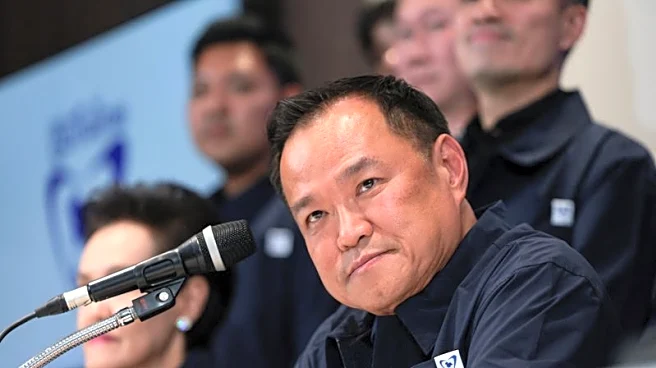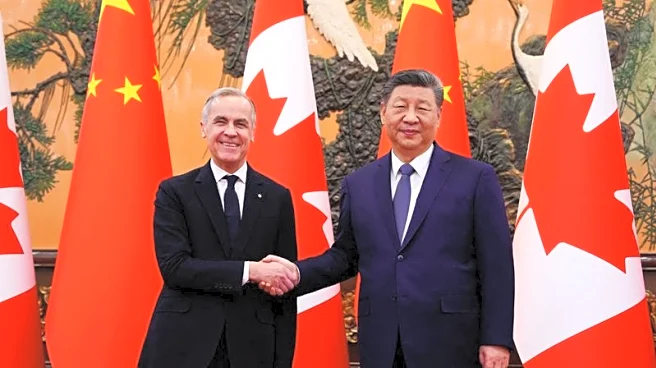Rapid Read • 8 min read
Corey Lewandowski, a prominent figure in President Trump's circle, has been increasingly influential at the Department of Homeland Security (DHS). Initially appointed as a special government employee, Lewandowski has assumed significant power, acting as a chief adviser to Homeland Security Secretary Kristi Noem. Despite his temporary status, Lewandowski has directed personnel changes, influenced FEMA grant funding decisions, and played a pivotal role in shaping DHS policies. His presence has been noted during international meetings and internal DHS operations, raising questions about the extent of his authority and the temporary nature of his role.
AD
Lewandowski's growing influence at DHS highlights the Trump administration's reliance on temporary appointees to exert control over federal agencies. His actions have significant implications for the management and direction of DHS, particularly in areas like immigration and emergency management. The concentration of power in Lewandowski's hands could affect the agency's operational integrity and its ability to function independently. This development may also impact public perception of DHS's effectiveness and impartiality, especially in politically sensitive areas such as FEMA's operations and immigration enforcement.
The continuation of Lewandowski's role at DHS may lead to further scrutiny from political leaders and civil society groups. Questions about the legality and ethics of his extended influence could prompt investigations or calls for policy changes regarding the use of special government employees. Additionally, Lewandowski's actions may influence upcoming DHS decisions, particularly those related to FEMA and immigration policies, potentially affecting the agency's long-term strategic direction.
Lewandowski's role at DHS underscores broader concerns about the use of temporary appointees in significant government positions. This practice raises ethical and legal questions about accountability and transparency in federal agencies. The situation also reflects the Trump administration's approach to governance, prioritizing loyalty and political alignment over traditional bureaucratic processes. These dynamics could have lasting effects on the structure and function of federal agencies, influencing how they operate and interact with other branches of government.
AD
More Stories You Might Enjoy












